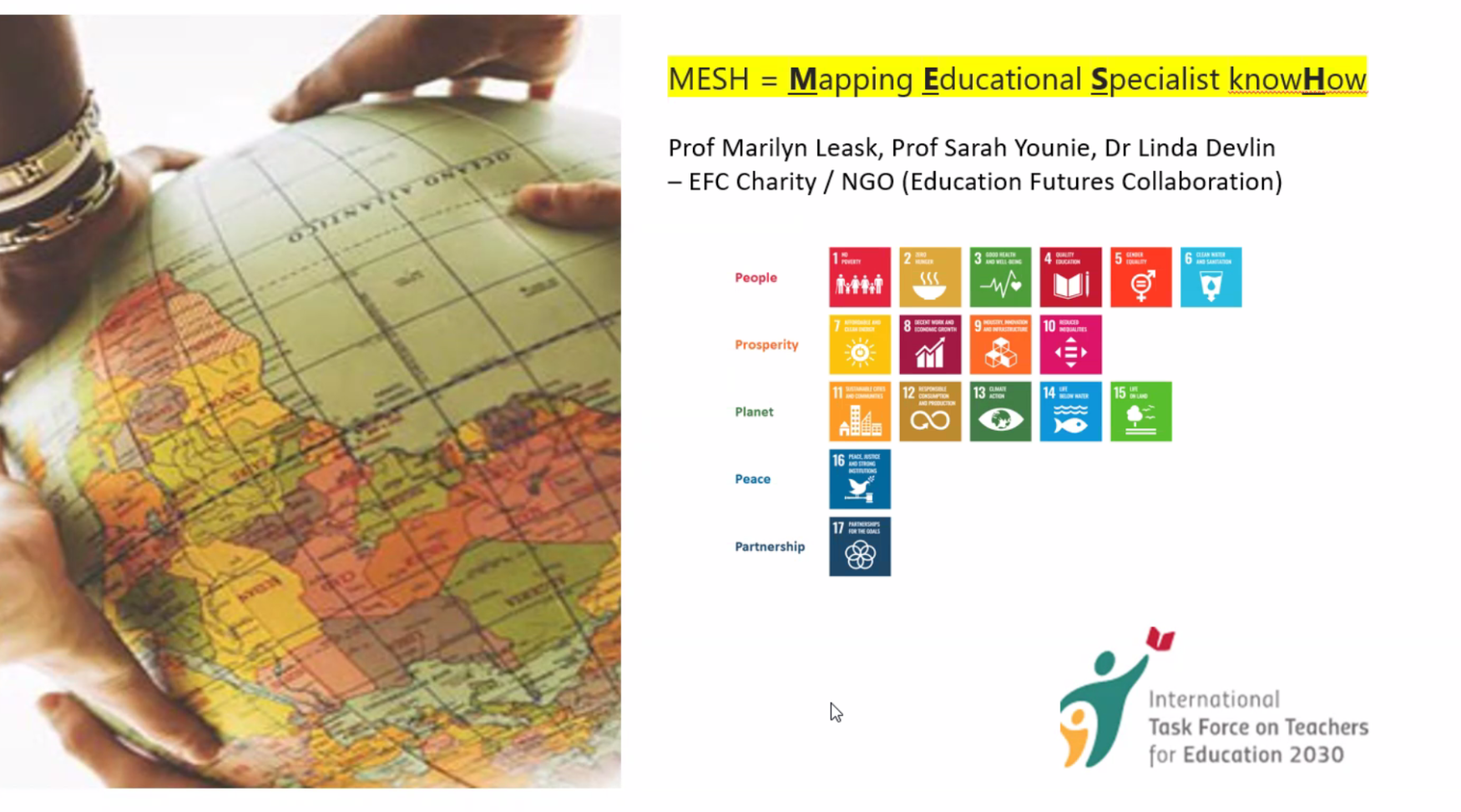
How can subject associations work together to preserve and share vital teaching knowledge? A recent CfSA event explored exciting opportunities through the MESH Guides platform.
On 25th September, the Council for Subject Associations hosted an online session with MESH (Mapping Education Specialist Know-how), bringing together subject association leaders to explore how collaborative knowledge-sharing can strengthen teaching practice across all disciplines.
What is MESH?
MESH Guides is an independent educational charity founded by Professor Sarah Younie and Professor Marilyn Leask, both former school teachers turned teacher educators. The platform emerged from a crucial need: when government changes restricted access to valuable teacher research, they realised that educational knowledge needed protecting from political interference.
MESH was established as a charity to keep research free at point of access for teachers, making knowledge a charitable asset that belongs to the profession itself.
The platform operates like a Wikipedia for education, creating quality-assured, peer-reviewed guides that cover pedagogy, curriculum, and subject-specific teaching approaches. These guides are available under Creative Commons licensing and can be accessed by teachers worldwide—with translation capabilities built in for international contexts.
The Challenge MESH Addresses
As Professor Younie explained during the session: “We know that there is so much out there on the internet now, that if a teacher was to type in something that they wanted to do, their screen will be filled with returns, but none of those returns are quality assured.”
Unlike textbooks with their three-year publication cycles, MESH guides can be updated quickly when new pedagogical practices or subject knowledge emerges. The platform already attracts visitors from more than 200 countries, demonstrating the global appetite for trusted, subject-specific teaching resources.
Why This Matters for Subject Associations
Subject associations hold deep expertise in their curriculum areas—expertise that teachers desperately need but may struggle to access quickly. MESH’s vision is to create an A-to-Z knowledge bank covering every discipline, with guides on concepts that teachers need to know, from pedagogy to threshold concepts within each subject.
This is where collaboration becomes powerful. As Professor Younie emphasised: “subject associations are the experts in the curriculum areas. It’s not expertise that we’ve got, it belongs to the members and the subject associations, and I think what we’re saying is: come and lead in your area? What is it you want teachers to know in your subject?”
Multiple Pathways to Contribution
The MESH team outlined several ways subject associations can get involved:
1. Research Synthesis
- Doctoral and Master’s research often contains valuable insights that never reach classroom teachers
- MESH can work with researchers to transform PhD theses and MA dissertations into accessible guides, using AI tools to help summarise findings efficiently
2. Practitioner Knowledge
- Subject leads and experienced teachers possess tacit knowledge about what works in classrooms
- Case studies from practice can be peer-reviewed and linked to existing research to create comprehensive guides
3. Existing Projects
- Teacher fellowships, CPD initiatives, and past projects from subject associations could be reformulated into MESH guides
- Even work from a decade ago may be highly relevant to current teaching challenges
As Professor Leask noted: “We’ve got hundreds of doctoral students across the country. Their work is not necessarily shared very widely. They don’t necessarily, because they’re practitioners and they’re studying, they don’t find the time, or feel the need to publish in academic journals.” MESH provides an alternative route to impact.
An Organic, Collaborative Approach
One of MESH’s strengths is its flexibility. The platform welcomes contributions from anyone interested in creating subject-specific guides, regardless of organisational affiliation, working on whatever timescale suits volunteers.
Importantly, guides aren’t meant to be finished products. Knowledge keeps building and being developed, so starting somewhere, even with gaps, allows for organic growth as other teachers add case studies or incorporate new research findings.
What Guides Look Like in Practice
Current MESH guides cover topics from entrepreneurship education to dyslexia-friendly classrooms, from spelling strategies to early childhood education. Each guide follows a clear template:
- Sources of evidence
- Definitions and key issues
- Summary and implications for teachers
- Examples of classroom resources
- Case studies from practice
The guides are dynamic—clicking on each section opens detailed information, with hyperlinks enabling deeper exploration of specific topics.
Getting Involved
For subject association leaders, the question is compelling: What knowledge from your discipline could help teachers right now? What research is gathering dust that deserves a wider audience? What practitioner expertise could be captured and shared?
Stronger Together
This initiative embodies the CfSA’s core message: we’re stronger together. By pooling our collective expertise through platforms like MESH, subject associations can ensure that vital teaching knowledge is preserved, quality-assured, and freely available to educators worldwide.
The challenge now is turning interest into action—identifying those first guides that could represent each subject area and beginning the collaborative work of knowledge exchange.
Want to explore MESH Guides further? Visit www.meshguides.org to see the current A-to-Z of guides and learn how to contribute.
Interested in collaborating? Contact the CfSA to discuss how your subject association could work with MESH to create guides in your curriculum area.
The recording and slide deck from this session are available to CfSA members. Contact us for access.
